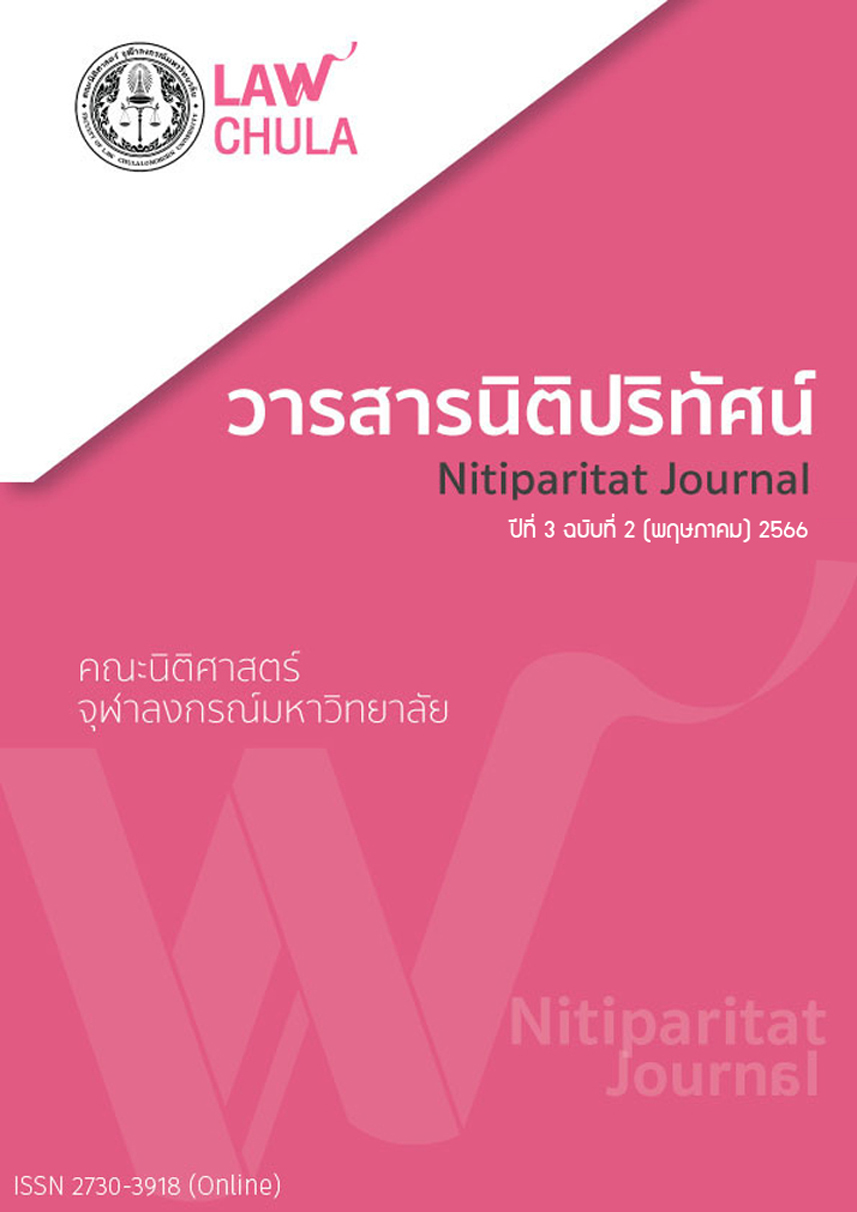Cybersecurity in the Realm of Legal Philosophy: where mankind confronts cyberspace
Keywords:
cybersecurity, natural law school, positivism law schoolAbstract
Amidst the ongoing advancement of technology in the digital era, it is inevitably known that cybercrime has often been conducted in the internet sphere to acquire targeted information through unauthorized methods. Cybersecurity is the mean to combat against this malicious access through cybercrime. Many wonder how far this cybersecurity can go without abusing its power and authority.
Some facets of cybersecurity may infringe on fundamental values such as equality, fairness, privacy, or freedom when overemphasized; however, taking cybersecurity for granted could undermine individuals' trust and confidence in many aspects of life. For instance, while cybersecurity is used as a tool to protect the data and privacy of individual, it also facilitates more access through private information by spontaneously giving those data to cybersecurity technicians as a pathway to identify malicious activities.
Accordingly, cybersecurity raises a plethora of ethical issues as to whether it can be conducted or not, assuming that the conduct itself violates the fundamental rights of engaged individuals, which respectively leads to another question as to which extent can cybersecurity be implemented while balancing the benefits and the drawbacks to preserve those fundamental rights from being violated.
This article is thus written to envisage how cybersecurity shall be implemented and to guide the answers to the questions raised above by analyzing the issues through the lens of legal philosophy in the ambit of natural law school and positivism school of jurisprudence.
References
Jeffrey Kaplan, ‘Hart – Concept of Law – Ch5 (Primary and Secondary Rules)’ (21 July 2020) <https://www.youtube.com/watch?v=Xg_9F2h89TE> accessed 22 April 2023.
Ibid
Lon Fuller, Positivism and Fidelity to Law: A Reply to Professor Hart (71 Harv. L. Rev. 1958) 632
Hart, Positivism and the Separation of Law and Morals (71 Harv. L. Rev. 1958) 615-21
Hart, The Concept of Law (2nd ed, Bulloch and Raz 1994) 52
Hart, The Concept of Law (2nd ed, Bulloch and Raz 1994) 155
Jeffrey Kaplan, supra note 1
Hart, The Concept of Law (2nd ed, Bulloch and Raz 1994) 92
Ibid.
J. Austin, The Province of Jurisprudence Determined (H.L.A. Hart ed. 1954) 92; Michael Payne, Hart’s Concept of A Legal System (18 William & Mary Law Review 1976) 289
Hart, supra note 8
Jeffrey Kaplan, supra note 1
Mehrdad Payandeh, The Concept of International Law in the Jurisprudence of H.L.A. Hart (21 The European Journal of Intenational Law, EJIL 2011 ) 983
Jeffrey Kaplan, supra note 1
Ibid.
Hart, The Concept of Law (2nd ed, Bulloch and Raz 1994) 96
UNGA Resolution 68/98, Group of Governmental Experts on Developments in the Field of Information and Telecommunications in the Context of International Security (A/68/98, 2013) para 21.
Hart, The Concept of Law (2nd ed, Bulloch and Raz 1994) 93
Thailand Cybersecurity Act 2019, s 61(1).
James Donato, Dworkin and Subjectivity in Legal Interpretation (40 Stanford Law Review 1517) 1987-88
Elise G. Nalbandian, Notes on Ronald Dworkin’s Theory of Law (3(2) Mizan Law Review 2009) 375; See also Riggs v. Palmer (1899).
Jeffrey Kaplan, supra note 1
Kelsen, Reine Rechtslehre (2nd edn, 1960) cited in Claudio Luzzati, Discretion and “Indeterminacy” in Kelsen’s Theory of Legal Interpretation (n.d.) 1; Kelsen, Introduction to the Problems of Legal Theory: A Translation of the First Edition of the Reine Rechtslehre or Pure Theory of Law (Oxford University Press 1997) 65-67, 78
Kelsen, Introduction to the Problems of Legal Theory: A Translation of the First Edition of the Reine Rechtslehre or Pure Theory of Law (Oxford University Press 1997) 78-79
Claudio Luzzati, Discretion and “Indeterminacy” in Kelsen’s Theory of Legal Interpretation (n.d.) 5
Ibid.
Kelsen, General Theory of Law and State (The 20th Century Legal Philosophy Series, Vol. I. Harvard University Press, 1945) 161-162; Kelsen, Introduction to the Problems of Legal Theory: A Translation of the First Edition of the Reine Rechtslehre or Pure Theory of Law (Oxford University Press 1997) 78
Claudio Luzzati, supra note 23
Juan Alberto del Real Alcalá, The Controversies about Legal Indeterminacy and the Thesis of the ‘Norm as a Framework’ in Kelsen (European Journal of Legal Studies, 2013) 177
This is a theory that Kelsen adopted from his pupil Adolf Julius Merkl; Compare Kelsen, Reine Rechtslehre (1934), 55–75
Lars Vinx, The Guardian of the Constitution (2015) 7
Ibid. 8
Lars Vinx, The Guardian of the Constitution (2015) 9; Schmitt (1931a), 12–48; See also Schmitt (1967).
Lars Vinx, The Guardian of the Constitution (2015) 9
Schmitt (1931a), 73–91; See also Schmitt (1938), 65–77.
Schmitt (1931a), 132-59
Carl Schmitt, Political Theology: Four Chapters on the Concept of Sovereignty (University of Chicago Press, 2005), trans. George Schwab, 5.
Thongchai Winichakul, ‘Rule by Legal Exceptions: RbLE’ (11 March 2023) <https://www.facebook.com/Thammasatlaw/> accessed 26 April 2023.
Denning and Strawser (2017) cited in Markus Christen et al., The Ethics of Cybersecurity (21 Springer 2020) 321
Satter R, ‘Italian Prosecutors Seek to Shelve Hacking Team Breach Case’ (Phys.org, 12 December 2017) accessed
May 2023.
Kristen Rundle, Fuller’s Internal Morality of Law (2016) 500
Fuller, The Morality of Law (1969) 40
Downloads
Published
How to Cite
Issue
Section
License
Copyright (c) 2023 สุพิชญา สุนทรธรรม

This work is licensed under a Creative Commons Attribution-NonCommercial-NoDerivatives 4.0 International License.
The manuscript is original, does not contain plagiarism, and does not infringe any copyright.



